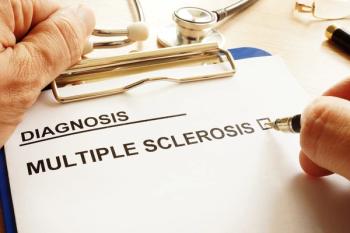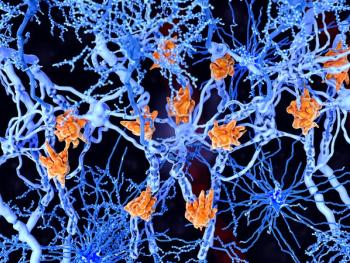
Neurology
Latest News

Latest Videos
CME Content
More News

The gene therapy delandistrogene moxeparvovec-rokl showed clinically meaningful benefits and disease stabilization at 2 years in patients with Duchenne muscular dystrophy (DMD).

The FDA approves a new maintenance dosing regimen for lecanemab (Leqembi; Eisai) in patients with early-stage Alzheimer disease (AD), enabling a transition from biweekly to once-every-4-week dosing while preserving clinical and biomarker benefits.

Prophylactic cardiac treatment may prolong survival in Duchenne muscular dystrophy (DMD), but only one-quarter of individuals received such treatment, a recent study found.

The results suggest that prolonging ambulation may not adversely impact cardiac function in adulthood for patients with Duchenne muscular dystrophy (DMD).

Compared with healthy controls, patients with multiple sclerosis (MS) had higher odds of filling prescriptions for gabapentinoids and other anticonvulsants in the 5 years prior to MS onset.

The differences did not appear to be associated with potential moderating factors like age, sex, or smoking status.

An analysis revealed global trends and emerging focus areas in Duchenne muscular dystrophy (DMD) research, emphasizing the growing impact of precision medicine and gene therapies.

Sub Subramony, M.D., discusses strategies to enhance support for patients with Friedreich ataxia in clinical settings and the broader community, along with his aspirations for future research aimed at addressing unmet needs in treatment and patient support.

Sub Subramony, M.D., discusses the most prevalent complications and comorbidities in Friedreich ataxia, emphasizing the frequent cardiac complications and their significant impact on mortality rates.

Sub Subramony, M.D., discusses the challenges faced by patients with Friedreich ataxia in accessing healthcare services and managing their condition, as well as the significant burden the disease places on families and caregivers.

A study of 555 patients further solidified genotype-phenotype correlations in Duchenne muscular dystrophy (DMD).

Sub Subramony, M.D., discusses how the progression of patients' conditions often leads to a decline in quality of life and functional capabilities, highlighting key clinical indicators that necessitate the adoption of mobility aids.

Sub Subramony, M.D., discusses how the modified Friedreich Ataxia Rating Scale (mFARS) is valuable for monitoring disease progression in clinical trials and its applicability in everyday clinical practice for assessing patient status.

Panelists discuss how the differential diagnosis for Friedreich's Ataxia involves distinguishing it from other ataxias, the process of definitive diagnosis through genetic testing, and the significant emotional and practical impact that such a diagnosis has on affected families.

A Friedreich ataxia specialist discusses how the typical clinical presentation of Friedreich's Ataxia includes early onset with symptoms such as ataxia and sensory loss, while also examining the pathophysiology and incidence rate of the condition.

In the phase 2 FORWARD-53 study, the exon-skipping oligonucleotide WVE-N531 showed promising safety and efficacy in boys with Duchenne muscular dystrophy (DMD) who are amenable to exon 53 skipping.

A Friedreich ataxia specialist shares their optimistic outlook on future developments in the management of the condition.

The HERCULES study of tolebrutinib is the first and only to show reduced confirmed disability progression at 6 months in nonrelapsing secondary progressive multiple sclerosis (MS).

Both cycling and home-based exercise training helped maintain gait and balance parameters in children with Duchenne muscular dystrophy (DMD), with cycling training also improving antero-posterior balance.

Study results demonstrated significant correlations between fatigue and reductions in walking speed and mobility among patients with multiple sclerosis.

Engaging with healthy lifestyle behaviors, including a healthy diet and physical activity, was associated with better outcomes among patients with multiple sclerosis (MS).

Looking to the future of Alzheimer disease treatment, the panel discusses key takeaways on the evolving therapeutic landscape.

Accelerated approval was originally granted in June 2023 for patients aged 4 to 5 years, indicating there was an unmet clinical need for a potentially life-saving treatment for the rare genetic muscle disorder.









